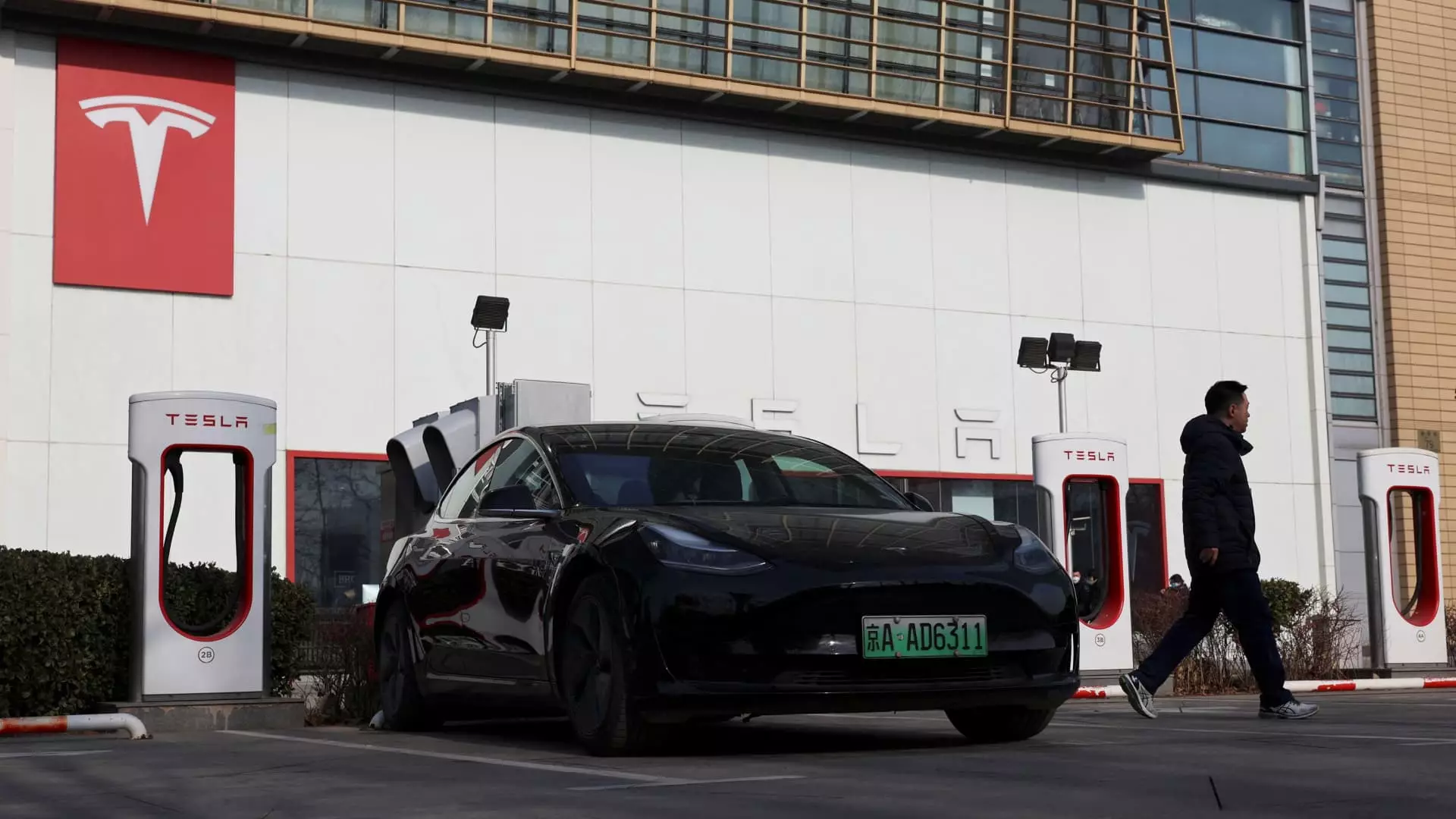The automotive landscape in China is undergoing a seismic shift, with local electric vehicle (EV) manufacturers poised to capitalize on the decline of foreign competitors. As we approach 2025, the trajectory for companies like BYD and Geely suggests a consolidation of market share that could alter the industry dynamics significantly.
BYD, a beacon of innovation in China’s electric vehicle sector, has dramatically increased its share of the automotive market. According to a report by Nomura, BYD captured 16% of the entire auto market by October 2024, compared to just 12% the previous year. This steep growth underscores the company’s formidable position in a landscape where traditional foreign automakers are losing traction. Their hybrid models have contributed significantly to this success, bridging the gap between fully electric vehicles and those still reliant on fossil fuels.
Analysts have taken note of BYD’s ascendance, rating it as a “buy” with a target price of 375 Hong Kong dollars, a modest but realistic estimate given BYD’s soaring performance, which even eclipsed Tesla in revenue during the third quarter of this year. While Tesla maintains a lead in producing battery-only vehicles, BYD’s diverse lineup—including hybrids—has proven exceptionally appealing to Chinese consumers, showcasing the nuanced preferences within this vast market.
The story for foreign automakers in China remains bleak as companies like General Motors grapple with restructuring efforts. As GM reconfigures its joint ventures with local partners, it faces substantial financial burdens—expected costs in the billions—alongside the closure of manufacturing plants. Such moves reflect a broader trend where legacy automakers struggle to adapt to a market that rapidly favors battery-powered and hybrid vehicles. General Motors’ declining market share, which reached just 3% overall, signifies an urgent need for these corporations to rethink their strategies in the face of rising domestic competition.
Tesla, too, has faced challenges. The company reported a 4.3% dip in sales in November compared to the prior year, illustrating a growing vulnerability as local brands surge. This slowdown is particularly stark against the backdrop of BYD’s astonishing 67% sales increase during the same period, further cementing the Chinese manufacturer’s dominance in the EV arena.
Despite BYD’s impressive growth, Geely remains a formidable competitor with plans for expansion. Holding 8% of the market share, Geely’s recent initiatives suggest ambitious targets. Analysts predict that the company will achieve 2.6 million unit sales in 2025, buoyed by a projected 40% penetration of electric vehicles within its lineup. The acquisition of successful brands, such as Sweden’s Volvo, provides Geely with international experience that could serve as a competitive edge within the rapidly changing landscape of electric mobility.
Additionally, the relationship Geely has established with U.S.-listed Zeekr signals its commitment to innovation in the EV sector. As the market evolves, Geely’s diverse offerings and strategic positioning could enable it to capture even greater market share.
While dominant players like BYD and Geely forge ahead, a myriad of electric vehicle startups are emerging, although they have yet to collectively make a significant impact on the market. Companies like Yongda, which partners with tech titan Huawei, are gaining traction. Analysts project that with enhanced sales channels, including an increase in the number of authorized stores, Yongda could achieve sales exceeding one million units next year.
Other startups, including Nio and Leapmotor, are monitored closely by investors. Leapmotor’s efficient spending on research and development positions it favorably compared to competitors, indicating a focus on sustainable growth. Conversely, Nio aims for profitability by managing its R&D expenses while ramping up vehicle deliveries, showcasing a strategy that seeks to balance innovation with financial prudence.
As we glance towards 2025, the Chinese EV market is poised for transformative changes. BYD and Geely are set to solidify their leadership roles, while traditional foreign car manufacturers might retreat, unable to keep pace with the innovative drive of local players. The evolution of the industry indicates not just a shift in market share, but perhaps a fundamental redefinition of the global automotive paradigm—where local manufacturers may take the lead in shaping the future of driving. Thus, the next few years will be pivotal as these dynamics unfold, with both challenges and opportunities ahead for all players involved.

